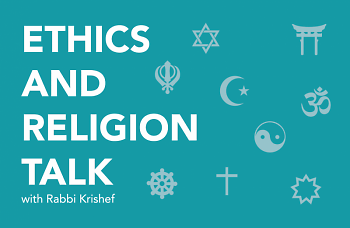Rev. Ray Lanning, a retired minister of the Reformed Presbyterian Church of North America, responds:
“Presbyterianism teaches that everyone who sins against God’s law ‘is bound over to the wrath of God, and curse of the law, and so made subject to death, with all miseries spiritual, temporal, and eternal’(Westminster Confession, Ch. VI, Sec. VI). In such a state we can only expect to be restless, fearful, and unhappy. The apostle Paul describes the unhappiness of those who sin willfully: ‘There remaineth no more sacrifice for sins, but a certain fearful looking for of judgment and fiery indignation, which shall devour the adversaries’ (Hebrews 10:26, 27).
“The good news is, God proffers peace and pardon to all who cease from sin and put their trust in His Son, Jesus Christ: ‘Therefore being justified by faith, we have peace with God through our Lord Jesus Christ: by whom also we have access by faith into this grace wherein we stand, and rejoice in hope of the glory of God’ (Romans 5:1, 2). King David offers this counsel to an unhappy world: ‘Serve the LORD with fear, and rejoice with trembling. Kiss the Son, lest He be angry, and ye perish from the way, when His wrath is kindled but a little. Blessed are all they that put their trust in Him’ (Psalm 2:11, 12).”
Linda Knieriemen, Senior Pastor at First Presbyterian Church in Holland, responds:
“I recently learned about the ‘hedonometer’, a happiness rating instrument whose data comes from specific words indicating ‘happy’ or ‘sad’ on Twitter. Based on this measure, the nations happiness has been on a steady decline since 2015 with predictable improvement around Thanksgiving and Christmas with significant decline at the times of mass shootings, racially motivated killings, natural disasters and the results of certain elections. In so far as Twitter users are representative of American society, then results are fascinating.
“Hedonometers aside, I suspect people are unhappy for two primary reasons. First, is the gap between expectations and reality. Life is hard. Life is not fair. I think of the cliche ‘God didn’t promise you a rose garden.’ Expectations for happiness are inflated, blown up by advertisements for everything from beauty product to luxury cars suggesting that money can buy happiness. Maybe they can, temporarily. Anyone who falls into this trap will be disappointed in the longterm outcome.
“Second, our lives move so fast we have less time for the simple pleasures: laughing with friends, maintaining healthy friendship, learning resilience and agility in the face of tragedy, being kind, and helping others. In Proverbs (14:21) we can read ‘The one who despises his neighbor sins, but whoever shows kindness to the poor will be happy.’ (Proverbs 14:21).
“This question prompts a further question: Is it happiness humans need or is it joy? Happiness is fleeting, episodic, emotional. Joy on the other hand is an internal baseline which can coexist with sadness, disappointment and struggle. Joy is a spiritual condition, a sustaining sense that at the end of the day, all will be well.”
The Rev. Steven Manskar, pastor of Trinity United Methodist Church in Grand Rapids, responds:
“The dominant American culture elevates individualism, materialism, and self-centeredness. Success in life is measured more in accumulation of wealth and things than relationships and sharing.
“People are convinced their government, climate and medical sciences, media, and religious institutions cannot be trusted. Political parties and media thrive on conflict and polarization. Income inequality and rapid demographic change cause people to feel insecure and fearful.
“It’s no wonder so many people are unhappy. When we pursue what the dominant culture tells us is happiness we inevitable find emptiness.
“My religious tradition, The United Methodist Church, has its origins in the work and witness of John and Charles Wesley. They were 18th century Anglican priests who preached a simple message centered in the teachings of Jesus Christ. They invited people into a way of life that equated holiness with happiness. They believed unhappiness is caused by a lack of holiness.
“In the Wesleyan tradition holiness is twofold love of God and love of neighbors. Happiness is found in habitual acts of compassion and justice. Happiness, therefore, is the fruit of a life dedicated to caring, giving, and sharing with others. It comes to people who pursue love, joy, peace, patience, kindness, generosity, faithfulness, gentleness, and self-control.”
The Reverend Colleen Squires, minister at All Souls Community Church of West Michigan, a Unitarian Universalist Congregation, responds:
“We are a nation divided and we are witnessing a great deal of suffering and death in this world due to Covid. We cannot even agree to all wear masks without it becoming a political issue. We have lost sight of what is important. When we all work for the greater good and keep that as our primary goal, we will know joy again. As I often remind my congregation the joys and sorrows of life come simultaneously, we are best when we celebrate the joys and honor the sorrows together.”
This column answers questions of Ethics and Religion by submitting them to a multi-faith panel of spiritual leaders in the Grand Rapids area. We’d love to hear about the ordinary ethical questions that come up in the course of your day as well as any questions of religion that you’ve wondered about. Tell us how you resolved an ethical dilemma and see how members of the Ethics and Religion Talk panel would have handled the same situation. Please send your questions to
[email protected].
The Rapidian, a program of the 501(c)3 nonprofit Community Media Center, relies on the community’s support to help cover the cost of training reporters and publishing content.
We need your help.
If each of our readers and content creators who values this community platform help support its creation and maintenance, The Rapidian can continue to educate and facilitate a conversation around issues for years to come.
Please support The Rapidian and make a contribution today.
